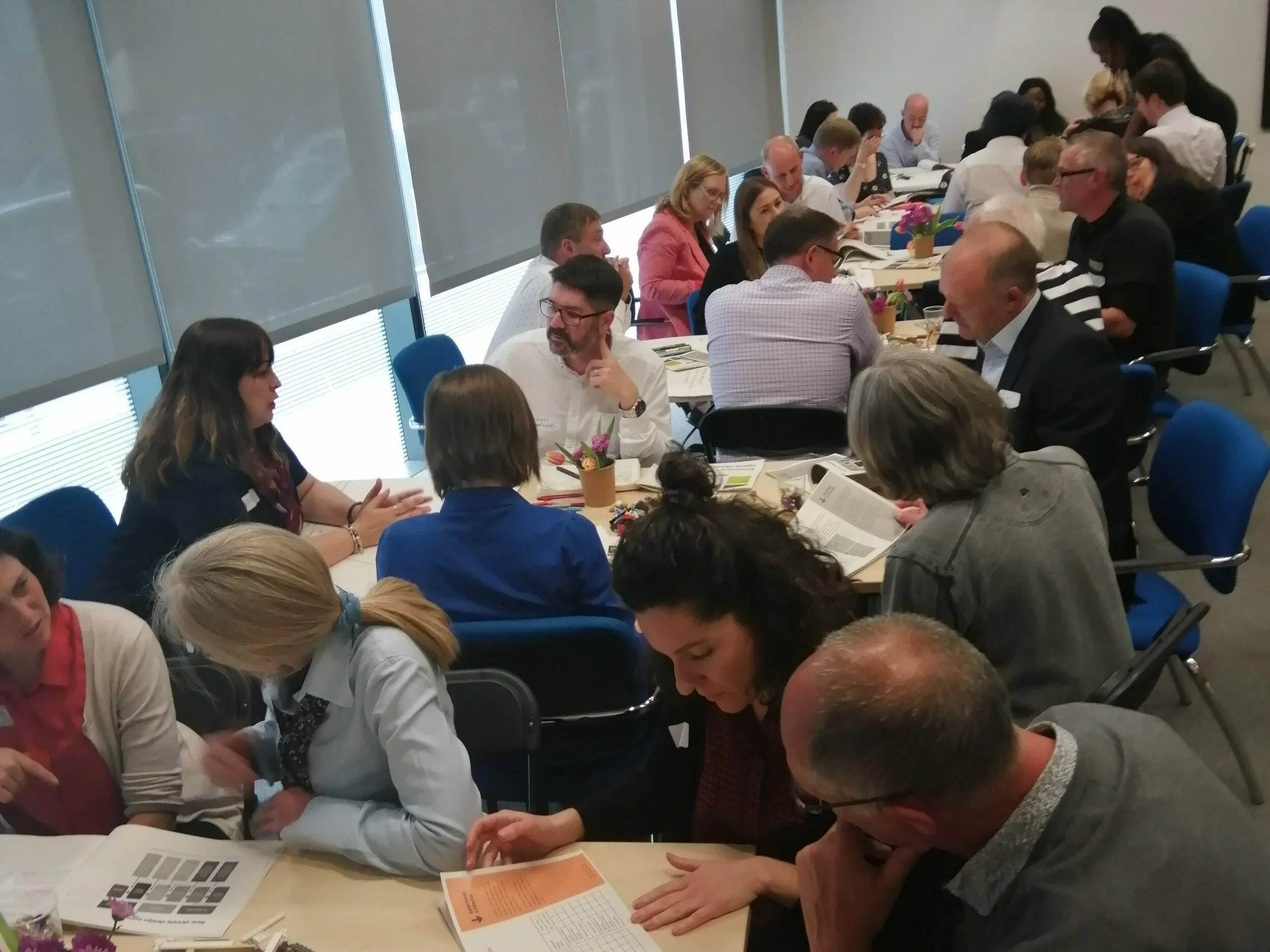The Community Programme to Learn and Action in the City Environment brings communities, authorities and industry together, joining the principles of Community Organising with Placemaking tools and strategies to deliver better places and a more democratic planning system.
The Co-PLACE ethos was piloted during the development of the Design Quality Framework for Nottingham City with exceptional results.
With Co-PLACE individuals and communities are empowered to join the other stakeholders - developers, designers, planning officers, local authorities, Councillors - in driving schemes from the ground up. Active engagement becomes a key part of the design process, and feedback given at the start of projects and right through to end-point delivery informs and guides the decision-making. Co-PLACE embraces the Community Organising Framework to ensure that communities are embedded in design and planning processes from start to completion. Participation, accountability, reflection and learning are always at the forefront for all stakeholders to drive towards the best outcomes for all. Power is distributed to support everyone's abilities to act, promoting social justice and building community resilience.
What is different about Co-PLACE?
Co-PLACE unites the staunch principles and values of Community Organisers with the resources of the planning system at local authority level to increase place democracy. It was conceived here, in the city of Nottingham, to deliver greater participation in Placemaking: to offer a real voice to communities and embody them in the design process.
Engagement is the key - not just consultation. Embracing a continuous, collaborative, multi-directional approach builds social cohesiveness and resilience. Input received at the right time, ensures that designs are responsive to communities' needs, and not just reflective of the designers' preconceived ideas. Designers also benefit as, through the engagement, constraints to Placemaking (such as economic or technical) can be explained to communities to foster mutual understanding and carve out a realistic shared vision. Significantly increased community involvement and empowerment means new knowledge and skills are needed.
Values and principles of Co-PLACE
Download
To download this page in PDF format, open the print menu by pressing Ctrl+P. Under the “Printer” drop-down menu, select “…Print to PDF” or “Save as PDF” (the exact wording may vary by browser). Click “Print”.
Consultation or engagement?
Traditional consultation events are often poorly attended or some groups are under-represented. There are limited opportunities for some people to participate, and some might find it difficult to express themselves in such formal environments.
Co-PLACE promotes a continuous dialogue, bringing the Placemaking debate to a range of groups and networks in more comfortable and approachable environments.
Continuous engagement is at the heart of the Co-PLACE ethos.
Currently, participation in planning still focuses primarily on providing site-specific, top-down, unidirectional consultation: considering and consulting over a single design in a specific moment in time and space. In best practice examples, participation provides information and opinions from the community to designers and developers to inform schemes.
In contrast to this, engagement is a continuous, collaborative, multidirectional approach that focuses on the process itself rather than being site-specific. Engagement is about what the design, planning and building processes can offer to communities to help them build social resilience.
Whilst consultation tends to be only one event, sometimes with surveys and opportunities to record responses, engagement is a culture of inclusion and equality that is embedded throughout the process to empower communities.
Whilst it remains rare to find good examples of engagement in practice, Co-PLACE looks to redress this.
The planning system offers opportunities for all of the practices above. Which technique to adopt will largely depend on the size and nature of the project. For example, for a private house extension proposal, consultation only with local residents would normally suffice, whilst for larger, higher impact development, the views of the community are critical.
How Co-PLACE promotes empowerment
Empowerment is the act of giving power to someone to do something. Indeed, a quick search of the word 'empowerment' will yield hundreds of millions of results, but the very first, from Oxford Languages and Google, offers this example: 'individuals are given empowerment to create their own dwellings'.
This is at the essence of Co-PLACE: those who are directly affected by the design proposal are EMPOWERED and valued as essential partners in the process and can take their own projects forward.
Traditionally, consultation would take place by the design team or the local authority hosting a meeting of interested parties to discuss a proposal, allowing people to voice their opinions. This would then be fed back to the full team and the consultation would likely end there.
Empowerment is far more than this.
A long term, on-going process of engagement allows the facilitators to LISTEN to the motivations and goals of all participants. From this understanding and through DIALOGUE, the participants are then guided towards tools and strategies that will facilitate them to be able not only to voice opinions and concerns, but also to take ACTION to steer the proposal forward, in terms of both WHAT happens and HOW it happens.
The Co-PLACE ethos looks for opportunities for empowerment throughout the design and planning process.






